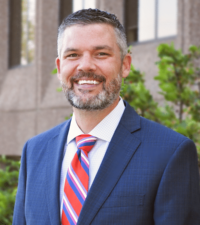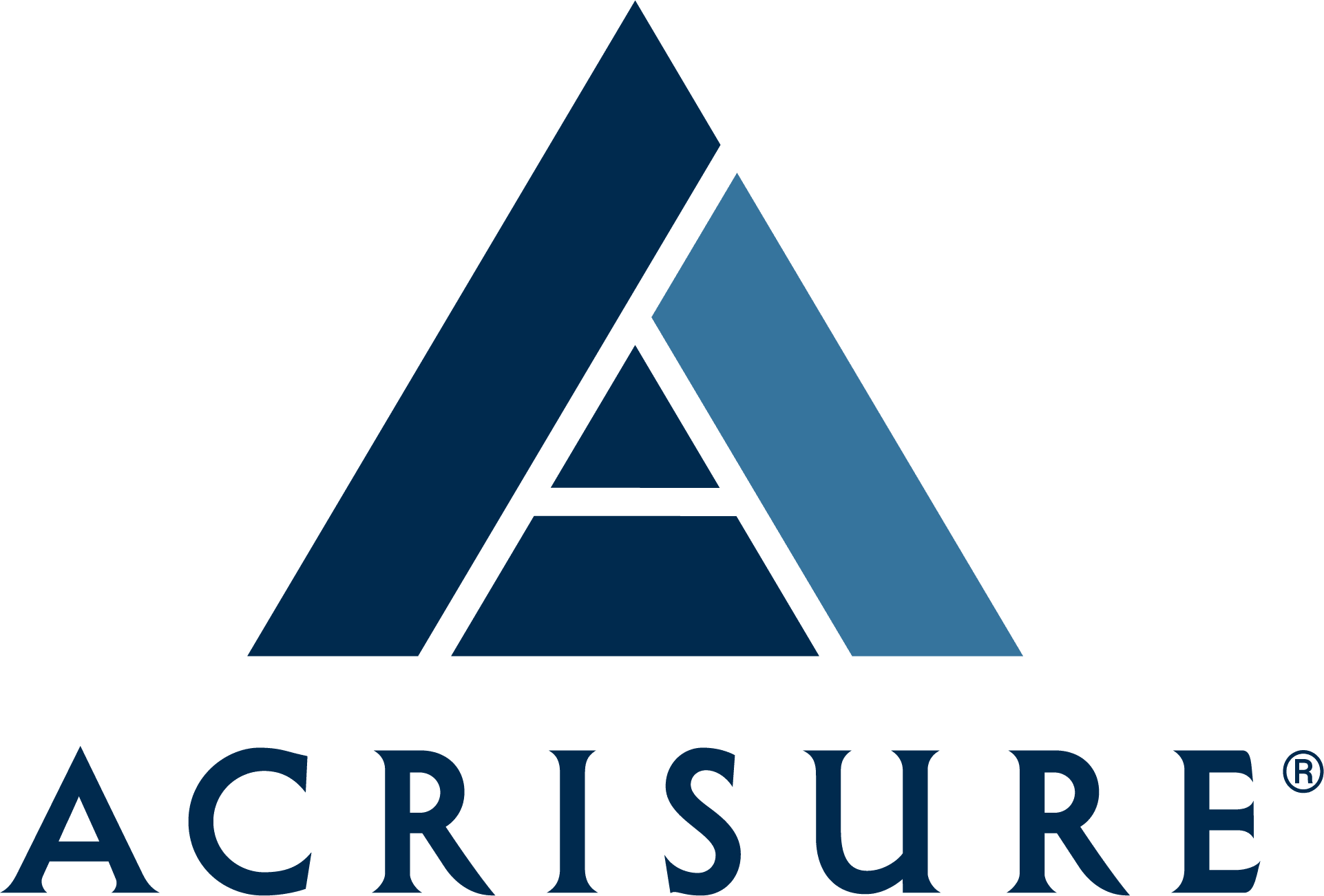
Episode 2:
"The Unexpected Awesomeness of Insurance"

Featuring Ian Sutherland
In episode 2 of Got You Covered, Director of Sales and Vice President, Ian Sutherland, tells us about how he got into the insurance world. There’s a lot more to the insurance industry than meets the eye; join us to discuss how it touches all our lives and why it can be an exciting career opportunity!
Transcript
Intro – Ryan (Host): Welcome to Got You Covered, presented by Hickok and Boardman Insurance Group, the podcast where we unpack the countless ways in which insurance affects our lives and so you can properly manage your unique risk.
Ryan: Welcome back, everybody to another episode of Got You Covered, presented by Hickok and Boardman Insurance Group. I’m your host, Ryan Lee, a client advisor with the firm. And today we are talking about, frankly, the Unexpected Awesomeness of Insurance. The insurance industry, at least for me, personally is something that’s really become a true passion of mine. But I think like many people who enter the insurance world, you don’t always expect it to be that fun, engaging and exciting on a daily basis. It’s just a great industry. And today to talk a little bit more about his experience, and why insurance is so great. We have Hickok and Boardman’s Ian Sutherland. He’s a Vice President and Director of Sales. Ian, welcome to the podcast.
Ian: Pleasure to be here. Thanks for having me on.
Ryan: No problem, man. So I’m curious. How did you get into insurance and, more so, even sales in the first place?
1:41
Ian: Yeah. Now that’s a great question because I always had this this picture of a salesperson as being a little bit squirrely, a little bit slippery, and so it was never an industry that really interested me. And you know, I was roofing houses in the summertime and in college, and then I did that for a few years after.
And I was at a party with the director of sales of an advertising sales company, and he you know, we hit it off and he said, “You know, you ought to come in and I think you’d be good at sales.” And I was like, “I don’t know,” like I said, you know, I just had this, this picture of a sleazeball. And I was like, “I can’t do that. I can’t trick people into to buying something you know, just for my financial benefit.”
But you know, anyway, I really liked the gentleman, and I could envision myself working for him and so I went in for the interview, got the job, and you know, that was 15, 16 years ago and I’ve since learned many things. One of which is that you can be very consultative in your sales approach. And if you feel passionate about the product you’re selling, and you feel like there’s a benefit to your client or your customer that you know can be a mutually beneficial relationship. And you know, you can both bring value to the equation and so you know, I fell in love with sales pretty quickly.
I was living in Massachusetts at the time, and we had our first child, and I was just traveling a lot and working very long hours and my wife is from Vermont. So, anyway, we had met here at school, and we knew we wanted to ultimately be back in Vermont and so I started looking for sales jobs here and came across insurance and you know, like, “What is this?” The salary frankly – the salary range looked like it was palatable, right. Take a pay cut coming from Massachusetts to Vermont but and then you know, the more I started interviewing with Hickok and Boardman specifically, just learning about the industry in general, and you know, about the product and how it’s very technical in many aspects. And it’s, it’s ever-evolving, and you know, you’ve got the residual income, and you get to build long term relationships, all those things really resonated with me.
And, and so anyway, that was about 12 years ago. And so I’ve been with Hickok and Boardman ever since and have been selling commercial insurance ever since.
4:32
Ryan: I feel like there’s so many people in sales that I’ve spoken with about this type of thing, where at least two people I found who are successful in sales. They see it as a consultative relationship and they see the big picture of, you know, how you’re leveraging a technical specialty and knowledge to somebody’s benefit. But we all felt this whole being a pushy salesman, feeling right?
You’re right, I was very resistant to that, coming from a nonprofit space, where everything’s about service and you don’t get paid very well at all, right? But it’s, it’s… I couldn’t agree more. I have a very similar situation for myself. So, if we really break down the insurance industry, I mean, in your opinion, why is insurance a more exciting career than it sounds?
Ian: Yeah, and trust me, I didn’t know it until I got into it that – how much the industry actually has to offer. You know, I was just kind of thinking, “Okay, I have to have my auto insurance or whatever.” So I knew there was, you know, a career and sales because I dealt with an agent and maybe a service person. But once you get into the industry, you find out about all these different career opportunities that, that – I was never aware of any of them.
If you have an interest in finance, or actuarial work, obviously, service claims management can be fascinating as well. The type of claims that you see come across your desk, and, you know, then you have to prevent those claims. You have loss prevention and safety and risk management. You have operations and HR. So, it really, in my opinion, pretty much no matter whatever your passion is, there’s a potential career for you in insurance. And it’s really cool, because one is, you know, we’re an aging industry. So, we’re gonna have a lot of attrition here in the next handful of years. And so, it’s created this, this void that has to be filled. And these careers are very stable, they’re well-paying careers. And so it’s a great opportunity for someone to get into the industry, and then really the sky’s the limit as to whatever, whatever their interest is, and what their aspirations are; there’s probably a home for you in the insurance industry.
7:12
Ryan: Yeah. And not to mention, you know, we’re thinking in the context of our agency – at least I am right – and all those jobs and roles you mentioned, exist at Hickok and Boardman, but they exist at companies and other agencies and broker firms and wholesalers all across the country. Yeah, it’s pretty cool. So, you mentioned a snippet about stability? What did you mean by that?
Ian: Yeah, so it’s kind of an interesting thing, insurance is something that in many cases, maybe even most cases, you have to have, right? It’s just kind of a cost of doing business or living, whether it’s, you know, you need to get a mortgage, or a car loan. Or if you’re a business and you have contractual requirements, you know, you may be a contractor, you’re required to carry insurance for that, or, if you provide a good or a service, then many of your customers are going to require that you have insurance, because it really is that that guarantee that, that collateral that if something goes wrong, the insurance obviously exists to help, pay that bed to cover that issue from a financial standpoint.
And so, it’s kind of fascinating when you step back and you think of it that way. Like you look out your window, and pretty much everything you see is insured to some extent. You know, most of it, that risk is transferred to an insurance carrier. You know, in some cases, it’s self-insured, to some extent anyway, but it’s, it’s kind of cool. And I never really had that perspective until I got into the industry and now I find myself wearing my risk management hat. So you know, I’m looking out the window and I’m seeing you know, see a guy dangling off a ladder and it’s like, that type of thing. But, uh, you know, so it really, it really does help and make the world go round. Because without it, you know, I just I don’t even know how the world could function. Frankly, I know that sounds a bit dramatic, but it’s, it’s true in most cases.
Ryan: Yeah. Yeah. And you think about like an industry where you, you do you want to make a big impact on the world, right? Well, if four or five years ago, you’d ask me if insurance would have made a big impact. I probably know… “This guy… I get my like auto insurance from…” Kind of like you said, right. But then you step into it and you put your risk management lens on and you see it’s literally how everything functions. Everything you do, and insurance allows the world to function. And you can get your goods and services that you need, or to do a project, or go out to eat or whatever you want to do.
10:14
Ian: Yeah. And, you know, there’s nothing more satisfying than to be able to say to your client, “That claim is covered,” you know. I’ve personally had claims where, frankly, the company may have gone out of business, you know, had they not had insurance. Yeah, because you just can’t come up with that amount of money easily. Right? It certainly would have been a significant inconvenience and change their operations to some extent anyway. But you’ve got this policy, you know, you’ve paid a little bit of money over a long period of time, and then you needed it, and you didn’t have to come up with that significant amount of money.
Ryan: Yeah. The other thing you mentioned was the industry is ever evolving. What did you mean by that?
Ian: Yeah, so it’s cool. I mean, it really is something that evolves with current world events. And you know, just a couple of glaring examples that come to mind are 911 of course and the fact that terrorism insurance came into play post 911. You know, it was essentially created. Then, everybody can you know, nobody can open up a newspaper or click on Google without seeing a ransomware attack or some type of cyber breach and of course we’ve got insurance to help cover the costs of those types of things. And that’s constantly evolving as you know, as the coverage needs to.
And then you’ve got what’s called an Employment Practices Liability that has existed for some time but really came to the forefront throughout the #MeToo movement. And then obviously, most, probably most recently is the pandemic, right. The effect that – how insurance was related to that and you know, the ISO which is the Insurance Service Offices has created a for business coverage to help cover their Business Interruption. Obviously, a lot of businesses were shut down due to the pandemic or had lost revenue. And so, I don’t believe that those forms are currently being used. My guess, is they’re probably trying to figure out how do we properly invoke or implement this and make it affordable so that businesses have the option to purchase it going forward? But you know, there’s not a day that I come into work and I don’t learn something new about insurance. So yeah, me you know, I love that. I love that challenge. I love that it relates to world events and, you know, to me that that keeps me stimulated and is exciting.
13:05
Ryan: Nice. Well this has been great. We covered a lot. Do you have any parting words for the listeners? I put you on the spot there, but that’s okay.
Ian: You did but yeah, that’s fine. I mean, hopefully my passion for the industry came through here. But you know, it is something that I think we need to educate people on from a younger age, frankly, you know, from high school anyway. That these opportunities within the industry that exist so that you know, they’re able to consider them as they look at what they want to do for a career. But I guess that would be my my parting thought.
13:48
Ryan: Nice. Well, thanks again for joining the podcast. And everybody, his has been another episode of Got You Covered presented by Hickok and Boardman Insurance Group. We’ll see you next time!
